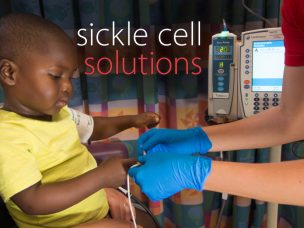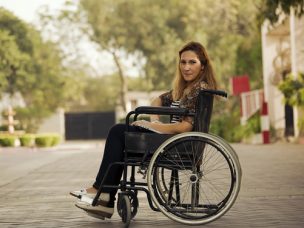Banner
Treating the 2.5 Million Diabetic Latinos in the U.S.
Within the United States, there are over 2.5 million Latino Americans suffering with type II diabetes mellitus. This is alarming, not only because Latinos are 17% more likely to develop diabetes than their white counterparts, but also because Hispanic women are 1.5 times more likely to die from diabetes than white woman. The lack of...
The Obesity Epidemic In the Latino Community
The Latino population in America have a higher prevalence of obesity and it is important that clinicians treating these patients understand the causes of this epidemic. With data showing that one in every four Latinos are now obese, regardless of their age, we have to start finding ways to combat this ever-increasing problem in order...
FDA Approves Oxbryta, Second Sickle Cell Drug Approval in 10 Days
On Monday November 25 the U.S. Food and Drug Administration granted accelerated approval to Oxbryta (voxelotor) for the treatment of sickle cell disease (SCD) in adults and pediatric patients 12 years of age and older. “Today’s approval provides additional hope to the 100,000 people in the U.S., and the more than 20 million globally, who...
African Americans Experience More Frequent MS Relapses
Multiple sclerosis affects approximately 400,000 people across the United States and over 2 million people worldwide. [Munoz-Culla 2013; Buchanan 2011] Symptoms of MS include focal signs such as weak motor and sensory deficits, visual disorders, spasticity, bladder and bowel dysfunction, and dysphagia, as well as generalized symptoms, including depression, pain, cognitive difficulties, and fatigue. [Kahn...
FDA Approves First Targeted Therapy to Treat Patients With Painful Complication of Sickle Cell Disease
On November 15 the U.S. Food and Drug Administration approved Adakveo (crizanlizumab-tmca), a treatment to reduce the frequency of vaso-occlusive crisis – a common and painful complication of sickle cell disease that occurs when blood circulation is obstructed by sickled red blood cells – for patients age 16 years and older. “Hope has never been...
The Many Complications Faced by Patients With Atopic Dermatitis
Atopic dermatitis (AD) can be complicated by infections, allergic and nonallergic comorbidities and quality of life impairments. Understanding the severity of the disease and its comorbidities and how it affects vulnerable populations is important for clinicians who encounter AD. AD is an inflammatory, relapsing skin disease that follows a chronic, relapsing course and is characterized...
Challenges Among Women & Minorities With Multiple Sclerosis
A lack of diverse representation of patients in clinical research has made it difficult to adequately assess the unique patient journey and efficacy of treatment for minority MS patients in comparison to non-Hispanic Caucasian women. According to a recent study published earlier this year in Multiple Sclerosis and Demyelinating Disorders. The African-American population in...
Atopic Dermatitis More Severe in African Americans & Asians
Clinicians should be aware of the differing severity and presentation of atopic dermatitis (AD) in African Americans. The frequency of atopic dermatitis is increasing, and is more common among Blacks, Asians, and Pacific Islanders. [Desai 2009] In fact, eczema is the second most frequent skin disease in African Americans. [Silverberg 2013] In the US, African...
Study Finds Racial Disparities In Treatment of Multiple Myeloma Patients
Source: www.BloodJournal.com Compared with whites, African Americans and Hispanics receive treatment later and with higher associated costs (WASHINGTON, October 17, 2019) — Among patients with multiple myeloma, African Americans and Hispanics start treatment with a novel therapy significantly later than white patients, according to a new study published today in Blood Advances. The study found...
More Medical News














